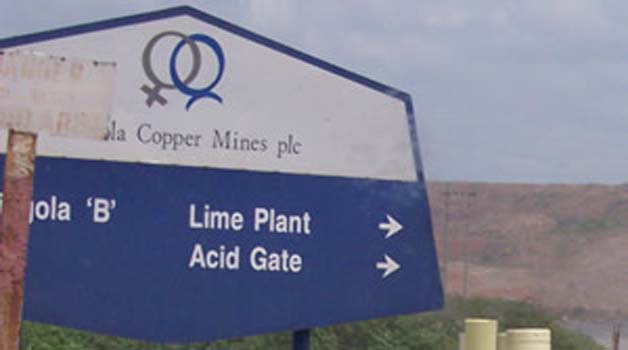ALTHOUGH there can never be commercialised mining without pollution, the levels of toxic substances in the air and water emanating from the mines have to be regulated to save people exposed to mining activities.
Thus the Government’s move to order Konkola Copper Mines (KCM) not to process 2,000 tonnes of copper concentrate imported from Chile due to its abnormal toxic substance is welcome.
In announcing the decision, Lands, Natural Resources and Environmental Protection Minister Christabel Ngimbu said the concentrate had four per cent of arsenic, a toxic substance.
Ms Ngimbu said after making the necessary assessment and consultation with stakeholders and Government agencies, the ministry arrived at a decision to stop KCM from processing the copper.
After the Lusaka High Court ordered Konkola Copper Mines (KCM) in December 2011 to pay K10 billion (US$2 million) to 2,000 Chingola residents for polluting the Mushishima River, we thought mining companies had learnt a lesson.
We call on the Zambia Environmental Management Agency (ZEMA) to work hand-in-hand with the Government and other entities to ensure mining companies comply with the requirements regarding environmental concerns.
In the judgment to force KCM to compensate affected Chingola residents, ZEMA cooperated with the Government in ensuring that justice was done.
ZEMA and all concerned institutions should, therefore, ensure that emissions from the mines do not cause further harm considering that even in acceptable amounts emissions from mines are still harmful to human beings.
Arsenic is a chemical element with symbol As and atomic number 33 and occurs in many minerals, usually in conjunction with sulfur and metals, and also as a pure elemental crystal.
Metallic arsenic is mainly used for strengthening alloys of copper, especially lead, for example, in car batteries.
Arsenic is a common n-type dopant in semi-conductor electronic devices, and the optoelectronic compound gallium arsenide is the most common semi-conductor in use after doped silicon.
Arsenic and its compounds, especially the trioxide, are also used in the production of pesticides, treated wood products, herbicides and insecticides.
However, the element can be toxic for multi-cellular life if present in quantities larger than needed. Arsenic contamination of groundwater is a problem that affects millions of people across the world.
We feel a large and reputable mining company like KCM has experts who know this and should have taken measures before importing 2,000 tonnes of copper concentrates into the country.
While valuing the role mining plays in a mono-economy like Zambia’s, there should be stringent measures in ensuring environmental concerns are addressed adequately.







